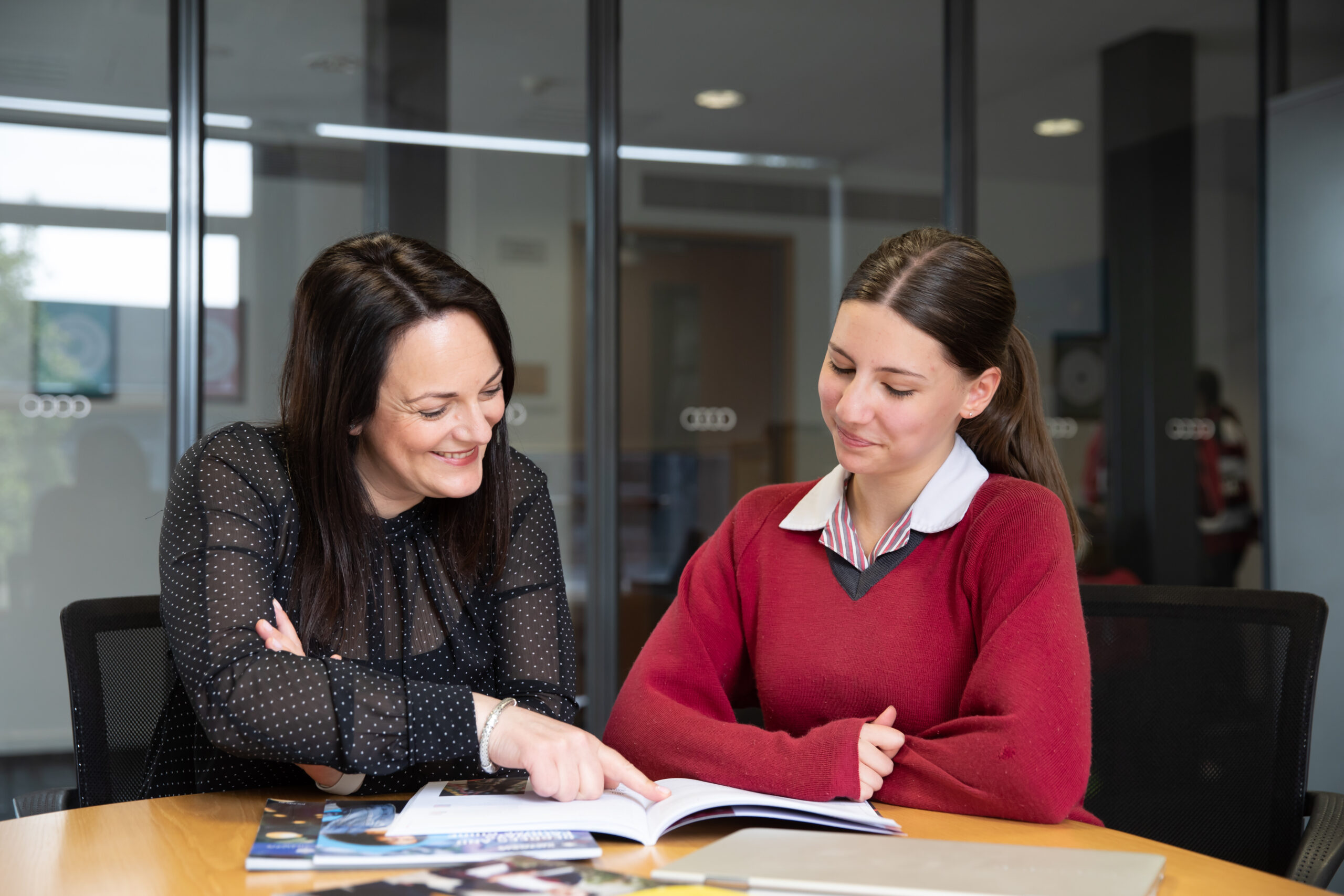Debunking the myth
By Louise Blennerhassett, Korowa’s Student Futures Specialist
Myth: I must do the IB to gain entry into an international university.
Fact: Both the VCE and IB facilitate entry into international universities.
The Victorian Certificate of Education (VCE) is an internationally recognised secondary school program, offering opportunities for students to continue their education at leading universities both in Australia and around the world. Many of Korowa’s students have enjoyed international tertiary study in the US and UK receiving offers to attend universities such as, University College London (UCL), Warwick University, University of Manchester, Queen Mary University of London and University of Southern Florida. We encourage our students to follow their interests and explore all the options both within Australia and beyond.

For many years, students considered the International Baccalaureate Diploma Program (IB) the only option if they wanted to study an undergraduate degree overseas. However, the IB is not the sole pathway to overseas study. This means that regardless of what program students’ study in their final two years of secondary school, either VCE or IB, they have equal opportunity of obtaining a place at an international university.
When selecting what course to undertake in your final years at secondary school, students need to consider their strengths, interests and which program will best suit the way they learn. The IB can be an academically challenging program, and has a considerably greater workload than the VCE. Its rigid curriculum is uncompromising. The VCE on the other hand, only has one compulsory subject – an English (English, English Language, English Literature or EAL), and students can select their other subjects based on their strengths and interests. Whereas students completing the IB must select six subjects including the student’s first language, a second language, a humanity, an experimental science, mathematics, and one other subject. In addition, they complete three core components: Theory of Knowledge, the Extended Essay and CAS (Creativity, Activity, Service).
While the IB is well regarded by all leading universities, it is important to understand that recognition does not necessarily equate to value. US and UK universities each have quite different ideas about education and what they most value. The US tends to encourage diversity, experimentation, and breadth of study, whereas the UK encourages specialisation and focus on a particular subject. UK universities like to see that students are involved in activities related to what they want to study. For example, if they apply for a business degree, admissions officers will look for evidence of their knowledge in this subject area. This is where studying the VCE would be more valuable as students can select their subjects and be more focused on what they study.
Often students, where English is their second language, will select subjects where writing and reading is minimally required, instead preferencing science and mathematics-based subjects where a greater level of visual learning is implemented. The IB often does not suit these students as the IB’s three core components, plus the compulsory humanity subject, require an extremely high level of English proficiency to complete the essays, presentations, and projects to succeed and score well. The VCE provides greater flexibility in selecting subjects that suit a student’s style of learning and strengths.
To study the IB and do well, you need to be like a marathon runner. It requires consistent work and solid performance over a two-year period. Whereas the VCE allows for the practice of skills in Units 1 & 2, with Units 3 & 4 being formally assessed, the IB can, and does, assess formally throughout the two years of the course. Final exams are also taken at the end of the two-year period, which means students will be tested on two years of content and will need to have just as strong an understanding of the material taught at the beginning of the course as at the end.
Korowa continues to support students to explore study abroad options if they are interested in doing that. In 2022 alone, three out of three students at Korowa who applied to study internationally in 2023, have been offered places. Both the VCE and IB provide students with an internationally recognised program and score at the end of their secondary schooling. Selecting which course is right for you should not be about what will get you a place in an international university, they will both do that. It should be about selecting the style of learning that suits you, selecting a program that offers subjects that align with your strengths, allows you to complete any prerequisites for future studies and will allow you to succeed.
The IB is not for everyone. And if you choose to do it, make sure it is for the right reasons. Those who are suited to the program will thrive, but it can be a very different story for those who aren’t.
Students will perform at a high level in the right surroundings for their academic and intellectual growth, whether that is the VCE or IB. Students have a much better chance of getting accepted into a top-ranked university in Australia or overseas if you do well in your school curriculum than if you do “just okay” in the IB.




